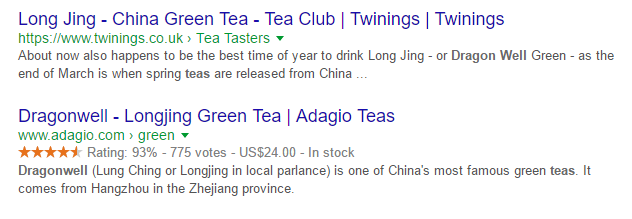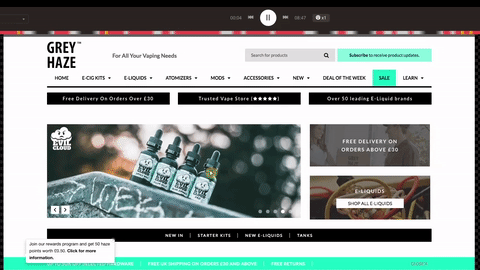Having recently started my new job with Shopify experts Eastside Co. as an SEO professional, I soon found myself sending out SEO proposals and suggestions to our clients. The common issue with preparing technical proposals for new clients is that you never know how familiar are they with SEO and web design terms and jargon.
On one hand, as a digital agency we need to ensure that each client understands what we are going to do with their website, the benefits and how our actions may influence his website and traffic. On the other hand, we don't want to overload proposals with potentially unnecessary explanations and neither we want to appear patronising.
So my solution to the problem was to create this glossary of SEO terms and link to it whenever it's needed. This helps us to keep our proposals brief and to the point while still providing clarification where necessary.
We have created anchor links for each of the following subheadings, so that we or anyone else could link to particular subheadings.
Or, if you feel like that's too much for you and you need a professional to have a look at your website's SEO, please feel free to contact us.
- What is a citation?
- What is NAP in SEO?
- What is a backlink?
- What is a keyword in SEO?
- What is keyword research?
- What are long tail keywords?
- What is SERP?
- What are meta descriptions and Google snippets?
- Why are Google's rich snippets important?
- What are canonical links?
- What is duplicate content?
- What is a page title tag?
- Why are H1 and H2 tags important?
- What are heatmaps?
- What are SEO rankings and how do I check them?
What is a citation?
SEO citation is a reference to your business on the Internet. Citations help Google to recognise your details across the Internet as belonging to the same business entity, which therefore allows the company to rank well for its own brand name.
Citations do not necessarily include links to the company website and normally include the following:
- Name of company
- Address
- Phone number
What is NAP in SEO?
NAP stands for Name, Address and Phone number. Using consistent NAP across the internet will make Google aware of your company presence and should quickly improve your brand name rankings in Google. NAP is important part of Local SEO.
What is a backlink?
A backlink, also known as inbound link is simply a link from an external website to your website. Backlinks are extremely important for SEO and rankings. They show Google and other search engines that the linked website is popular, and other websites consider it to be interesting or useful enough to link to it.
What is a keyword in SEO?
A keyword is what we type into Google's (or Bing's if you are using Explorer) search field when we want to look for something. The keyword could be a single word or a whole phrase.
What is keyword research?
Keyword research is an activity that serves as a base for any SEO campaign. The keyword research aims to find and list all keywords and keywords phrases that could bring traffic to a particular website, while taking into account popularity of the search term, level of competition and relevance to the researched website.
What are long tail keywords
Long tails keywords, as opposed to more generic keywords, are longer and more specific search terms that bring less traffic to the website, but produce more conversions because the content of the page has more relevance to what the person has searched for.
A good example would be the more generic "digital marketing" versus the long tail "SEO services provider in Birmingham UK".
What is SERP?
SERP is an acronym normally used by SEO professionals. SERP stands for Search Engine Results Page which is the page displayed to show the results for the user's query, including links and snippets.
What are meta descriptions and Google snippets?
Meta descriptions are short snippets of text representing the content of the page. They could be added to each page manually, otherwise snippets would be pulled out by Google automatically. Meta descriptions do not have any direct SEO impact, however, they can improve the click through rate and therefore influence rankings indirectly.
This example shows that clear descriptions are more attractive as they give more explanations to the user straight from the search results page. [caption id="attachment_9528" align="alignnone" width="631"] SEO friendly meta description example[/caption]
SEO friendly meta description example[/caption]
Why are Google's rich snippets important?
Google rich snippets are snippets that are enriched with some additional information other than description of the page. For e-commerce websites that might include price, availability of the item, its rating and similar. Rich snippets are not created automatically by Google as opposed to the normal snippets. These should be marked up in the code of the page manually or by installing a plugin, depending on your CMS. 
What are canonical links?
Canonical links or 'canonicals' are the links that are marked up as preferable ones for search engines. The same content could be sometimes found under the different URLs. For example, these two links www.shop.com/seo-blog/seo-terms-and-conditions and www.shop.com/tag-seo/seo-terms-and-conditions would be treated as duplicate content by Google though they point to the same article. To avoid that, one of them should be prioritised.
What is duplicate content?
Duplicate content is content that could be found under multiple URLs. That could be caused by copying and pasting content from other websites or due to incorrect website SEO set-up. Google avoids serving a SERP with identical results to users. Therefore, if pages with duplicate content are located, they are benchmarked against each other and Google will show the one which seems to be the original, or best one.
What is a page title tag?
A page title is an SEO ranking factor that can influence both the rankings of the page and user behaviour. Page title is set within the code of the webpage and displayed as the name of the page within the search results page. 
Why are H1 and H2 tags important?
H1s & H2s are HTML tags that are set up within the code of the page to mark headings and their structure. H1 would normally be used to mark the title of the page and H2 would be normally be used as a subheading. H1 and H2 are emphasised visually and would normally be larger than the rest of the text on the page. These tags, along with page title, influence SEO and let Google know the subject of the page.
Heatmaps
Website heatmap is a visual representation of user behaviour on the website; it shows where users click the most on the page. Many heatmaps also show the exact pathway the user has followed. This data helps to analyse what gets attention and what doesn't, as well as allowing webmasters to find bottlenecks and reasons for users leaving the website prior to completing their journey. The most well-known user behaviour trackers are Crazy Egg and Google heatmaps, though it's quite limited. There is also a heatmap app for Shopify developed by none other than your favourite Shopify experts, Eastside Co.
What are SEO rankings and how do I check them?
Ranking in SEO is the position on which a certain page would be placed at SERP, while searching for specific keywords. Rankings could vary depending on the user location, his previous search history, Google's localisation: for example, www.google.co.uk vs google.de and other factors.
Checking rankings is the key for evaluating effectiveness of the SEO campaigns. Website positions could be obtained either with the help of paid tools or manually by searching for the word in Incognito mode to avoid your past searches influencing the results.





